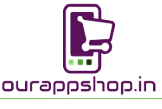IoT (Internet of Things) Engineer Developer Career Plan (1 Year)
| Quarter | Goals and Objectives | Actions and Tasks | Skills to Develop/Enhance |
|---|---|---|---|
| Quarter 1 | – Strengthen your IoT basics | – Review IoT concepts, including sensors, connectivity, data collection, and communication protocols | – IoT fundamentals |
| – Learn about IoT hardware and platforms | – Understand different hardware components (e.g., sensors, microcontrollers) and IoT platforms for building connected devices | – IoT hardware and platform knowledge | |
| – Study programming languages | – Enhance your proficiency in programming languages commonly used in IoT development, such as Python or C++ | – Programming skills | |
| – Collaborate with IoT teams | – Partner with hardware engineers, data analysts, and other IoT experts to understand collaborative development workflows | – Collaboration with IoT teams | |
| – Join IoT communities | – Participate in online forums, conferences, and communities focused on IoT trends and techniques | – Networking in IoT field | |
| Quarter 2 | – Develop IoT device prototypes | – Learn how to design and prototype IoT devices using microcontrollers, sensors, and connectivity modules | – IoT device prototyping skills |
| – Focus on communication protocols | – Understand communication protocols used in IoT (e.g., MQTT, CoAP, HTTP) for transmitting data between devices and networks | – Communication protocol knowledge | |
| – Study data processing and analytics | – Explore techniques for processing and analyzing data collected from IoT devices to derive insights and trends | – Data processing and analytics skills | |
| – Enhance your version control skills | – Learn to use version control systems like Git to collaborate with other developers and manage code changes | – Version control skills | |
| – Reflect on your progress and set new goals | – Evaluate your IoT device prototyping skills, data processing knowledge, and set new goals for your career development | – Self-assessment and goal-setting | |
| Quarter 3 | – Deepen your understanding of IoT security | – Study IoT security challenges, authentication methods, encryption, and secure device management | – IoT security knowledge |
| – Explore edge computing and fog computing | – Understand edge computing concepts for processing data closer to IoT devices and fog computing for extending edge capabilities | – Edge and fog computing knowledge | |
| – Study IoT architecture and design | – Learn about IoT system architecture, including components, layers, and integration patterns | – IoT architecture design concepts | |
| – Collaborate with data scientists | – Partner with data scientists to understand how IoT data can be used to drive data-driven decisions | – Collaboration with data scientists | |
| – Reflect on your progress and set new goals | – Evaluate your IoT security knowledge, edge computing understanding, and set new goals for your career development | – Self-assessment and goal-setting | |
| Quarter 4 | – Study IoT trends and innovations | – Explore emerging trends in IoT, such as Industrial IoT (IIoT), smart cities, and wearable technology | – Emerging IoT trends |
| – Develop IoT solutions and applications | – Learn how to design and develop end-to-end IoT solutions that address real-world problems and scenarios | – IoT solution development skills | |
| – Enhance your coding and debugging skills | – Gain hands-on experience with coding and debugging IoT applications, device drivers, and connectivity code | – Coding and debugging skills | |
| – Contribute to IoT communities | – Share your insights, projects, and tutorials by contributing to IoT development blogs, forums, or discussions | – Thought leadership in IoT | |
| – Reflect on the year’s achievements | – Evaluate your growth, accomplishments, and set new long-term goals for your IoT (Internet of Things) Engineer Developer career | – Self-assessment and goal-setting |
